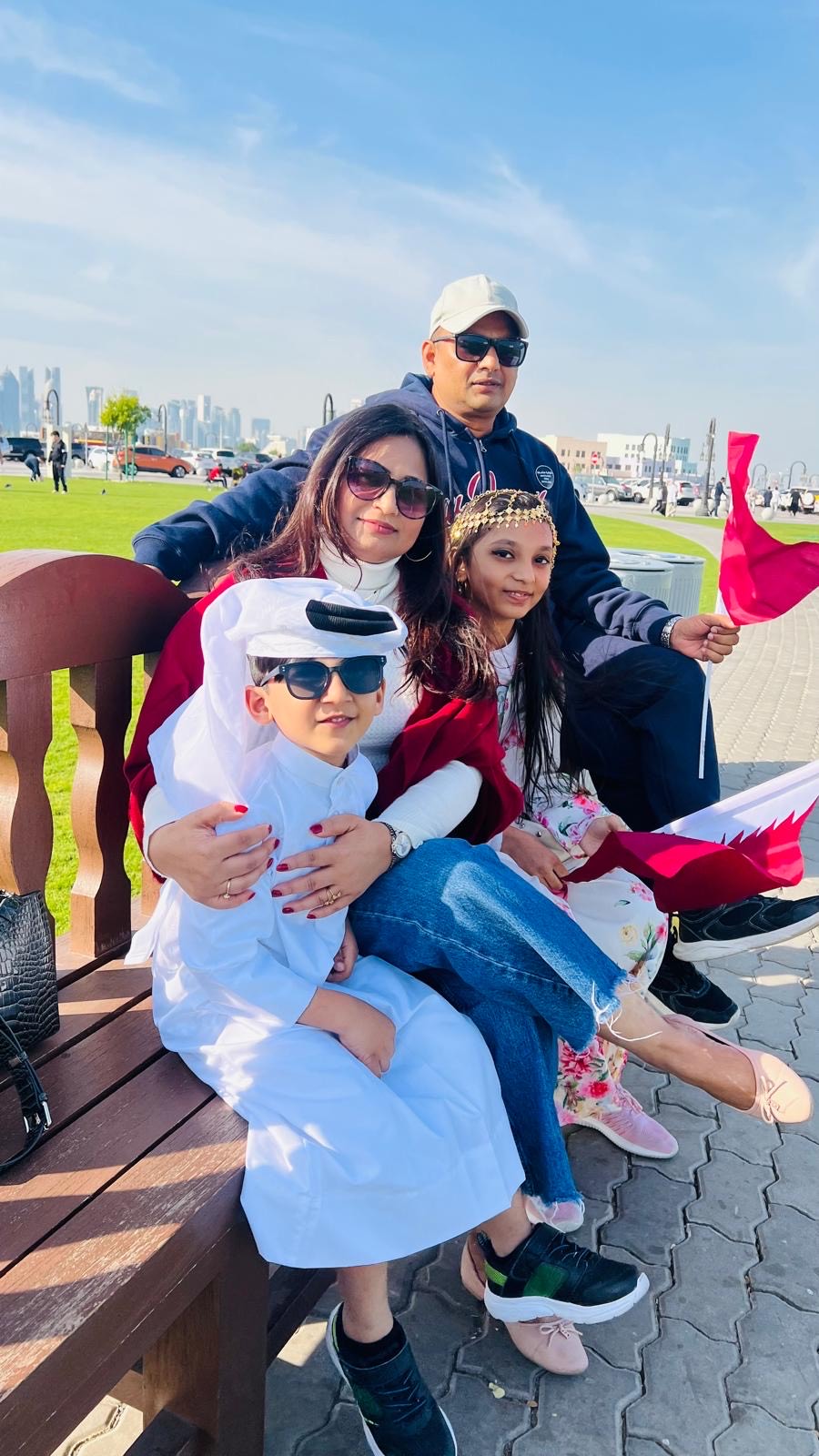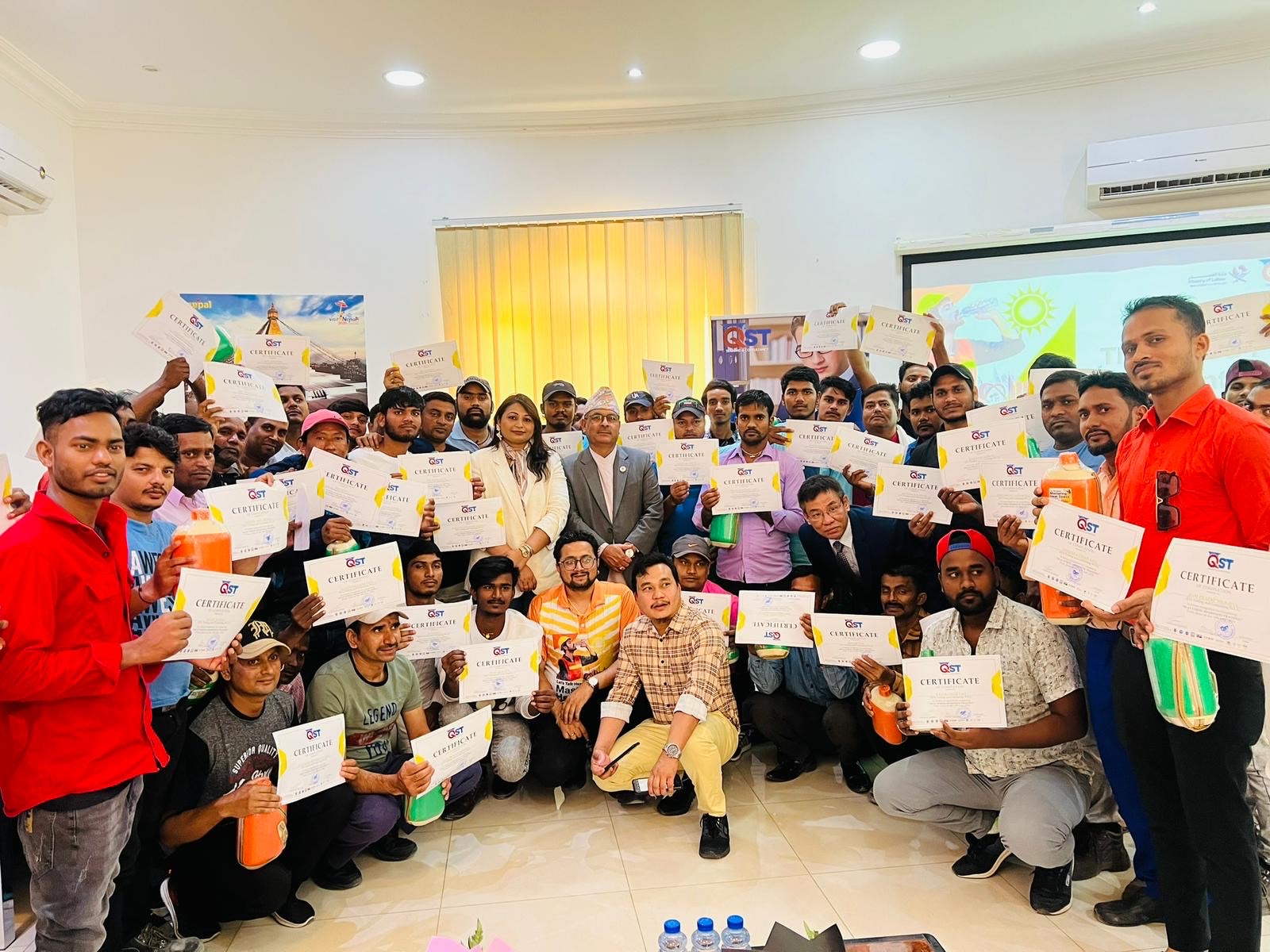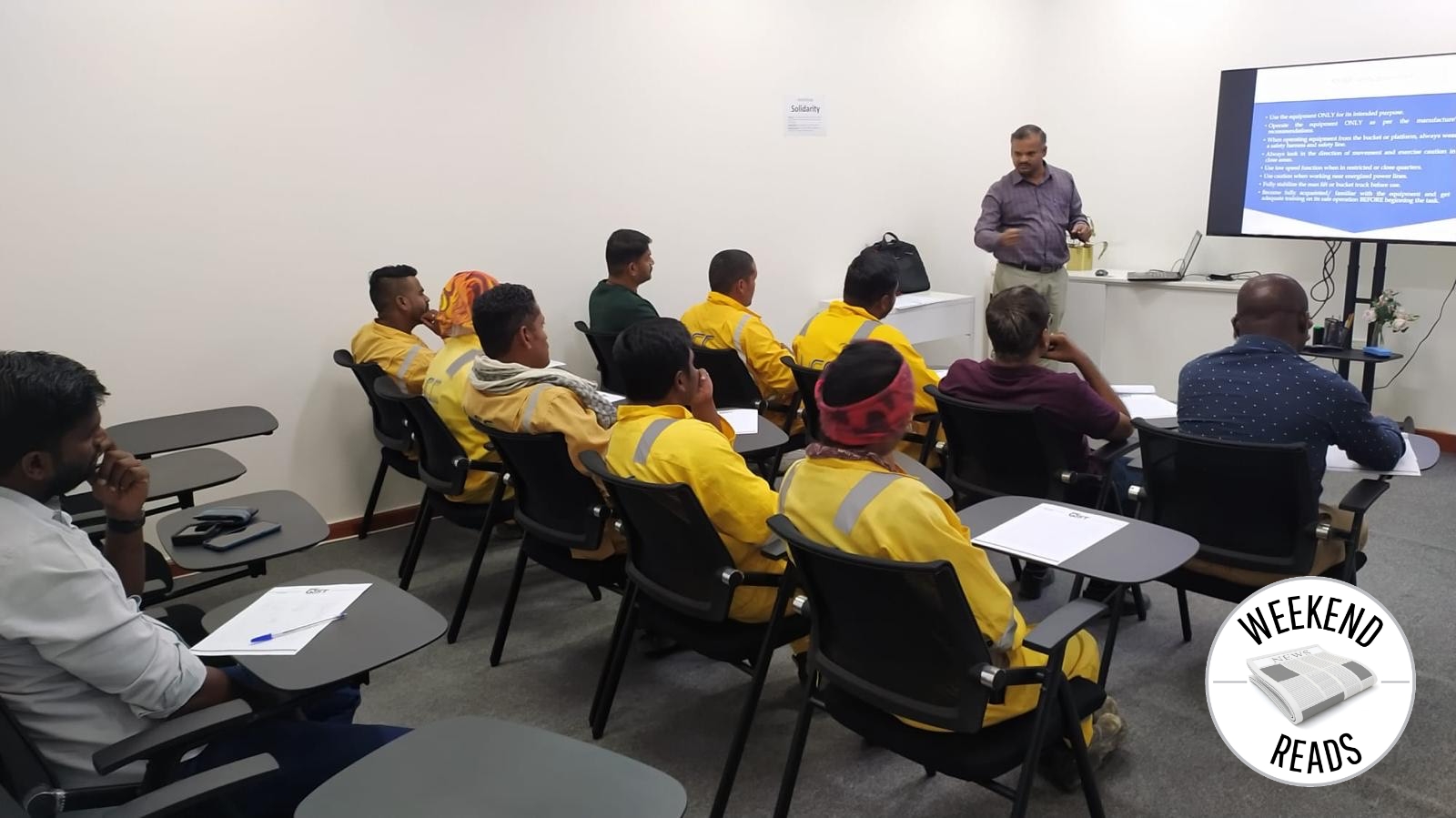The power of one
A Nepali helping fellow Nepalis get better overseas jobs is awarded in QatarThis is the 71st episode of Diaspora Diaries, a Nepali Times series in collaboration with Migration Lab providing a platform to share experiences of living, working and studying abroad.
The pressure to get married already started when I was 16, but my parents were very open-minded and wanted me to focus on my studies.
At 23, while working for Kingfisher, I got married. The Qatar-based Nepali man was a good match. I left work, but had to wait to join my husband because the paperwork was not easy. A minimum monthly salary of QAR10,000 ($2,750) was required to sponsor family members.
While waiting, I gave birth to my daughter and we left for Qatar when she was about six months old in 2013. I did not know what to expect.
Soon, I started being anxious about being a stay at home mother and wife. I already had a job in Nepal, and staying home all day was making me dull.
I had found a job at Qatar Airways while I was still in Nepal. But due to a change in management, it did not work out and was taking too much time.
An Indian acquaintance referred me to a newly established training centre for a receptionist job. Nepalis were viewed as suitable just for low-paid work and not for supervisors or receptionists. I had a good salary of QR2500 ($680).
My manager had a similar image about Nepalis, but once he observed my work, he was so impressed that within 10 days he made me handle administrative and account sections.
I was reluctant because I knew nothing about accounts. He said I just needed to update an excel sheet, and offered to mentor me.

I enjoyed the independence that my job and the earnings gave me. Within a year, I was promoted to assistant operations manager, and in the next four years, I almost ran the company on my own.
If you have a good boss, you can achieve a lot. The freedom he gave me taught me how to deal with corporate clients, obtain international certifications, and learn about the training needed in construction, hospitality and other sectors.
I started getting noticed in the training industry in Qatar and built a strong network with our client base. After five years, I left the job but I used to get calls from other companies with offers to help out, even when I was pregnant.
I used to attend meetings even in my ninth month. In all these stints, I had important roles but something or the other would not work out — an overbearing management or the company not delivering results.
These professional worries combined with a family problem took a toll on my mental health. On my doctor’s advice, my husband and I decided that I should go to Nepal to clear my head. Maybe a change of scenery would do me good.
Leaving behind my husband, I came home with my children but was not my usual bubbly self. I had become quiet and gloomy. The move did not help much, and I kept worrying about my children's education which was affected by the move. I decided to go back, but this time with a stronger mindset.
I started working part time, but was just not satisfied. I was not sure I could work under someone any longer, and as a Nepali I doubted if I would be offered a leadership position anywhere. I shared this with my husband, who suggested I start a company on my own.
As a Nepali woman in a foreign land, it would be difficult. But despite not having any money, I decided to give it a go.
My husband helped with the company’s registration: QST Training and Consultancy. I got an office space, and it was just as I had imagined. Even though the rent was three times more than what I was able to pay, the landlord offered me two months free rent. I had 60 days to make it.
I hired one staff on a commission basis, and our client base grew. With each payment, I bought an additional sofa or a desk, or set up my classroom.
Within two months, I had a fully functioning office with international certifications, and two-and-half years later we are doing well thanks to the network I had collected over the years.
I have always had a soft spot for fellow Nepalis, especially those in low paid jobs. There was untapped potential due to lack of guidance.

SELF-IMPROVEMENT
I advised them to get certifications which can help with promotions. Nepalis are reticent about asking for raises despite being capable and having the required experience and skills. They needed more confidence and proper communication skills.
Previously, as an employee myself, I was not able to help other Nepalis much. But now as a company owner, I have helped 500 Nepalis get free training and internationally-recognised certifications. I remind them to invest in their skills development while in Qatar itself.
In Nepal, rather than providing free training that is not recognised elsewhere, it is important to have internationally accredited certifications. It costs money, but is a good investment because trainees can benefit from higher wages.
This is not just about sending a more skilled workforce from Nepal to the Gulf or elsewhere. There are so many talented Nepalis overseas who will return sooner or later. What is waiting for them in Nepal when they go back? This should be an issue of biggest national concern.
Sometimes, a little nudge can go a long way. And being a part of the stories of the progress of fellow Nepalis through my company makes me proud. Nepali trainees feel connected to home because it is run by someone from Nepal.

I have now started a Toastmasters club for midlevel Nepali job holders so they can improve their managerial skills through better communication, confidence and leadership.
Talent is often not sufficient if a person cannot communicate well. The club helps people overcome such constraints so they can improve with practice, exposure and determination. Helping Nepali youth find their spark fuels me in ways nothing else can.
Perhaps it was watching my mother and father back help others that instilled in me a commitment to public service. They have been a source of inspiration for me.
I was recently conferred the prestigious Qatar CSR Award, and my company QST has been awarded the Best Center globally twice by the UK-based qualifications body, Highfield.
This makes me proud because I am not just representing myself, but my country. Along the way, I am helping change the perception of Nepalis as professionals and leaders in the international job market. This also changes the way Nepalis themselves look at migrants in the Gulf, compared to those who work in the US or Europe.
When I first went to Qatar almost 12 years ago, I thought I would be a stay-at-home wife. I made sure life turned out differently.




